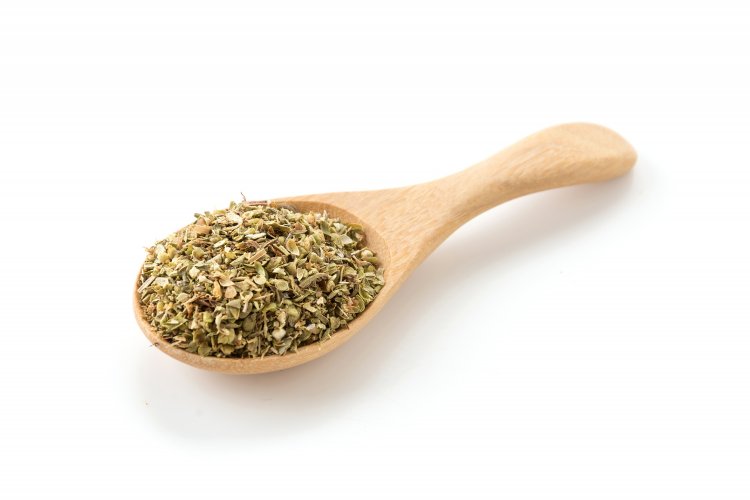Thyme: A Culinary and Medicinal Herb
Thyme (Thymus vulgaris) is an aromatic perennial herb belonging to the mint family, Lamiaceae. Native to the Mediterranean region, Europe, and parts of Asia, thyme has been cherished for centuries for its culinary uses, medicinal properties, and cultural significance.

Botanical Characteristics
Thyme is a small, woody shrub that typically grows up to 15-30 centimeters in height. It features tiny, elliptical leaves that are gray-green in color, and during the summer, it produces clusters of small, lilac to pink flowers. The leaves of thyme are where its essential oils, responsible for its distinct aroma and flavor, are concentrated.
Culinary Uses
Thyme is a cornerstone herb in Mediterranean cuisine, renowned for its robust, earthy flavor and aromatic qualities. It is commonly used fresh or dried in a variety of dishes, including soups, stews, sauces, marinades, and herb blends like bouquet garni and herbes de Provence. Thyme pairs well with meats such as lamb, poultry, and fish, as well as with vegetables, legumes, and grains. Its flavor profile is described as herbaceous, slightly floral, and mildly peppery, adding depth to dishes without overpowering other flavors.
Medicinal Properties
Thyme has a long history of medicinal use dating back to ancient civilizations. It contains several bioactive compounds, including thymol, carvacrol, and flavonoids, which contribute to its therapeutic properties:
Antimicrobial Activity: Thyme extracts exhibit strong antimicrobial effects against bacteria and fungi. Thymol, one of its key components, is known for its antiseptic properties and has been used historically to disinfect wounds and as a mouthwash to combat oral infections.
Antioxidant Benefits: The antioxidants in thyme help protect cells from oxidative stress caused by free radicals, potentially reducing the risk of chronic diseases such as cardiovascular disorders and certain cancers.
Respiratory Health: Thyme is valued for its expectorant and antitussive properties, making it effective in easing respiratory ailments such as coughs, bronchitis, and congestion. Its ability to help clear mucus from the airways can promote easier breathing and alleviate discomfort.
Digestive Aid: Traditionally, thyme has been used to aid digestion by stimulating the production of digestive enzymes and reducing symptoms of indigestion, bloating, and gas.
Cultivation and Harvesting
Thyme thrives in well-drained, sandy soil and prefers full sunlight. It is propagated from seeds, cuttings, or by dividing established plants. Thyme can be grown in containers or directly in garden beds and requires minimal maintenance once established. Harvesting is typically done by pruning the stems as needed throughout the growing season. Both fresh and dried thyme leaves can be stored for culinary or medicinal use, with dried thyme retaining its flavor well over time.
Cultural and Symbolic Significance
Throughout history, thyme has held cultural and symbolic significance in various cultures:
- In ancient Egypt, thyme was used in embalming practices and as incense in rituals.
- Ancient Greeks associated thyme with courage and strength, often using it in baths and burning it as incense to purify temples.
- In European folklore, thyme was believed to ward off nightmares and evil spirits, and it was commonly placed under pillows for protection.
Today, thyme continues to be valued not only for its practical applications in cooking and natural medicine but also for its rich cultural heritage and symbolism.
Thyme stands as a testament to the enduring relationship between humans and herbs. From its humble origins in the Mediterranean to its widespread use globally, thyme continues to be a beloved herb cherished for its versatility, aroma, flavor, and therapeutic benefits. Whether enhancing the flavor of a savory dish or providing relief from respiratory ailments, thyme remains an indispensable herb in kitchens and herbal medicine cabinets alike.
Disclaimer: The information provided in this article is for educational purposes only and should not be considered medical advice. If you have any health concerns or are experiencing symptoms, it is important to consult with a healthcare professional, such as a doctor or clinic, for proper diagnosis and treatment. Always seek the advice of your doctor or other qualified health provider with any questions you may have regarding a medical condition. Do not disregard professional medical advice or delay in seeking it because of something you have read in this article.
#Thyme #Herbs #MedicinalHerbs #CulinaryUses #HerbalMedicine #NaturalRemedies #Antioxidants #Botanical #Gardening #CulturalHeritage
What's Your Reaction?





















